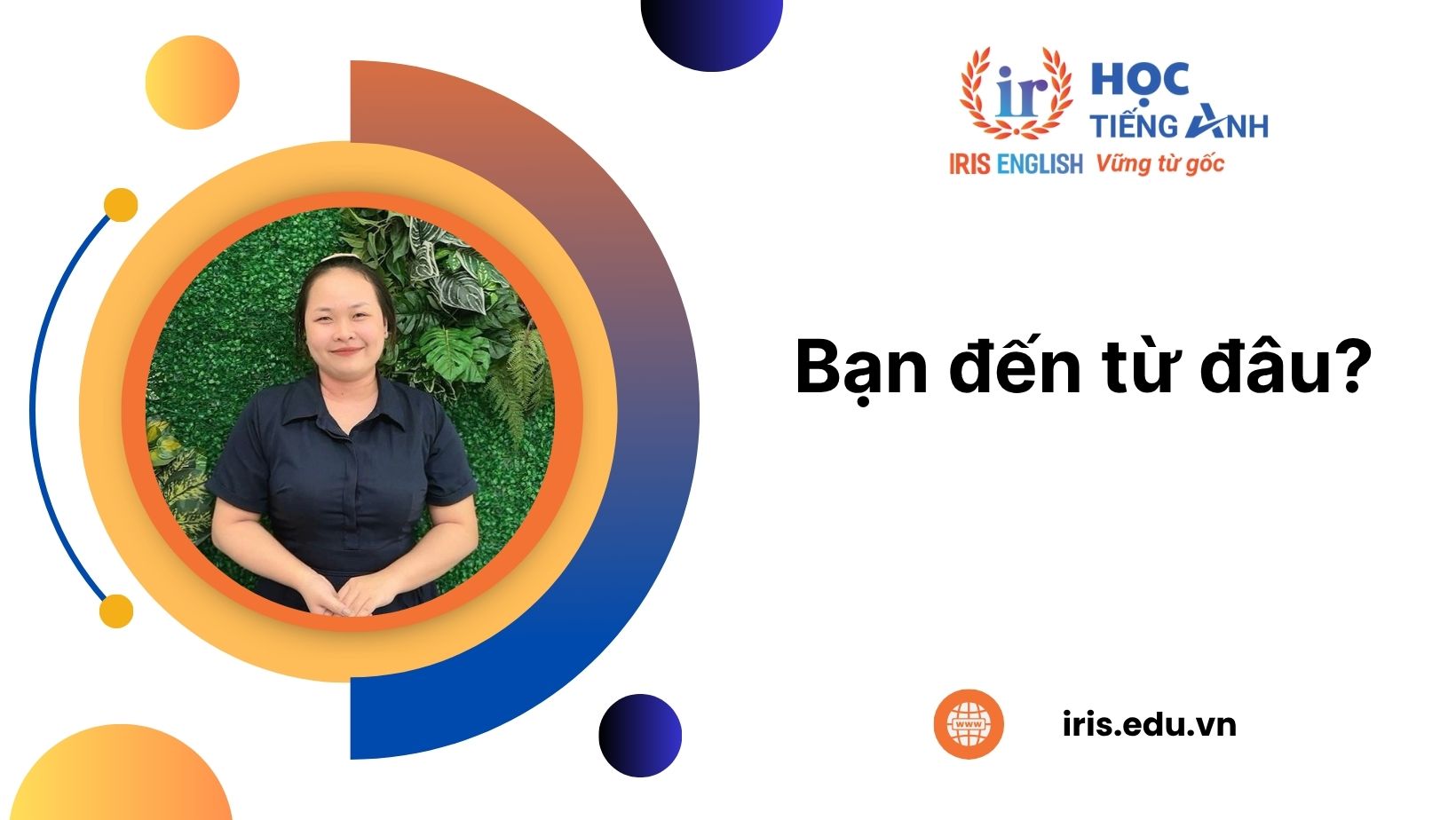Bài tập tính từ đuôi -ing và -ed là một phần quan trọng giúp bạn phân biệt cách sử dụng hai dạng tính từ này trong tiếng Anh. Nếu bạn còn nhầm lẫn giữa bored và boring, excited và exciting, thì đừng bỏ lỡ những bài tập thực hành dưới đây. Cùng IRIS English luyện tập ngay với một số bài tập để sử dụng thành thạo nhé!
Tóm tắt lý thuyết về tính từ đuôi -ing và -ed
Tính từ đuôi -ing và -ed là hai dạng phổ biến của tính từ trong tiếng Anh, thường được hình thành từ động từ. Tuy nhiên, cách sử dụng hai loại này có sự khác biệt quan trọng:
Tính từ đuôi -ing
Dùng để miêu tả bản chất của sự vật, sự việc hoặc con người, thường mang nghĩa chủ động (gây ra cảm xúc, tác động đến người khác). Công thức:
-
Danh từ + V-ing → Tính từ
Ví dụ:
-
The book is interesting. (Cuốn sách thú vị.)
-
That movie was boring. (Bộ phim đó thật chán.)
-
The lecture is confusing. (Bài giảng gây bối rối.)
Tính từ đuôi -ed
Dùng để miêu tả cảm xúc của con người khi bị tác động bởi một sự vật, sự việc. Nghĩa của tính từ thường mang tính bị động. Công thức:
-
Người + V-ed → Tính từ
Ví dụ:
-
I am interested in this book. (Tôi cảm thấy hứng thú với cuốn sách này.)
-
She was bored during the lecture. (Cô ấy thấy chán trong suốt buổi giảng.)
-
He looks confused. (Anh ấy trông có vẻ bối rối.)
So sánh nhanh giữa -ing và -ed
|
Tính từ -ing
|
Tính từ -ed
|
|
Chỉ tính chất của sự vật, sự việc (gây ra cảm xúc)
|
Chỉ cảm xúc của con người (bị tác động bởi sự vật, sự việc)
|
|
The movie is exciting. (Bộ phim hấp dẫn.)
|
I was excited about the movie. (Tôi thấy hào hứng với bộ phim.)
|
|
This job is tiring. (Công việc này mệt mỏi.)
|
She feels tired after work. (Cô ấy cảm thấy mệt sau khi làm việc.)
|
Lưu ý quan trọng
-
Không dùng tính từ -ed để miêu tả một sự vật, sự việc vì chúng không có cảm xúc.
-
Không dùng tính từ -ing để miêu tả cảm xúc của con người vì con người bị tác động bởi cảm xúc đó.
40+ bài tập tính từ đuôi -ing và -ed có đáp án
Trong chuyên mục này, IRIS English sẽ gửi đến bạn bộ 40+ bài tập tính từ đuôi -ing và -ed nhé!
Bài tập tính từ đuôi -ing và -ed số 1
Điền dạng đúng của từ trong ngoặc (-ing hoặc -ed):
-
The movie was really __________. (excite)
-
I felt so __________ after the long trip. (tire)
-
The book is really __________. I couldn’t stop reading it. (interest)
-
She looked __________ when she saw the ghost. (frighten)
-
His speech was so __________ that many people fell asleep. (bore)
-
I was deeply __________ by his kindness. (touch)
-
The news was very __________. Nobody expected that to happen. (shock)
-
He finds his job __________ because he does the same thing every day. (bore)
-
The children were __________ when they saw the magician. (amaze)
-
She made a __________ mistake that cost the company a lot of money. (confuse)
Đáp án:
-
exciting
-
tired
-
interesting
-
frightened
-
boring
-
touched
-
shocking
-
bored
-
amazed
-
confusing
Bài tập tính từ đuôi -ing và -ed số 2
Chọn đáp án đúng (-ing hoặc -ed)
-
I feel so (bored / boring) when I have nothing to do.
-
That was a very (interested / interesting) lesson.
-
He is always (annoyed / annoying) when people interrupt him.
-
The view from the top of the mountain is really (amazing / amazed).
-
They were (excited / exciting) about their trip to Paris.
-
His jokes were so (amused / amusing) that we couldn’t stop laughing.
-
She was (frightened / frightening) by the horror movie.
-
The lecture was too long and (bored / boring).
-
We were really (surprised / surprising) by the test results.
-
His ideas are always (inspired / inspiring).
Đáp án:
-
bored
-
interesting
-
annoyed
-
amazing
-
excited
-
amusing
-
frightened
-
boring
-
surprised
-
inspiring
Bài tập tính từ đuôi -ing và -ed số 3
Hoàn thành câu với từ đúng (-ing hoặc -ed)
-
I was really __________ when I heard the good news. (surprise)
-
That horror movie was so __________ that I couldn’t sleep. (terrify)
-
She was __________ because she had never tried sushi before. (interest)
-
His performance was truly __________. (amaze)
-
The lecture was really __________, so I almost fell asleep. (bore)
-
I don’t like math because I find it very __________. (confuse)
-
The dog was __________ by the loud noise. (frighten)
-
This book is so __________ that I read it three times. (excite)
-
He looked __________ after working for 12 hours. (exhaust)
-
We had an __________ trip to the mountains last weekend. (excite)
Đáp án:
-
surprised
-
terrifying
-
interested
-
amazing
-
boring
-
confusing
-
frightened
-
exciting
-
exhausted
-
exciting
Bài tập tính từ đuôi -ing và -ed số 4
Viết lại câu bằng cách dùng tính từ -ing hoặc -ed
-
This story interests me. → This story is __________.
-
The lecture bored him. → He was _____________________.
-
The news surprised us. → We were ________________________.
-
His jokes amused everyone. → His jokes were _________________________.
-
The loud noise frightened the child. → The child was __________________________.
-
The horror movie scared me. → The horror movie was _________________________.
-
The book disappointed me. → I was _________________________.
-
The party excited them. → They were _______________________.
-
The performance inspired me. → The performance was __________.
-
The view amazed us. → We were _________________________.
Đáp án:
-
This story is interesting.
-
He was bored by the lecture.
-
We were surprised by the news.
-
His jokes were amusing.
-
The child was frightened by the loud noise.
-
The horror movie was scary (hoặc frightening).
-
I was disappointed by the book.
-
They were excited about the party.
-
The performance was inspiring.
-
We were amazed by the view.








